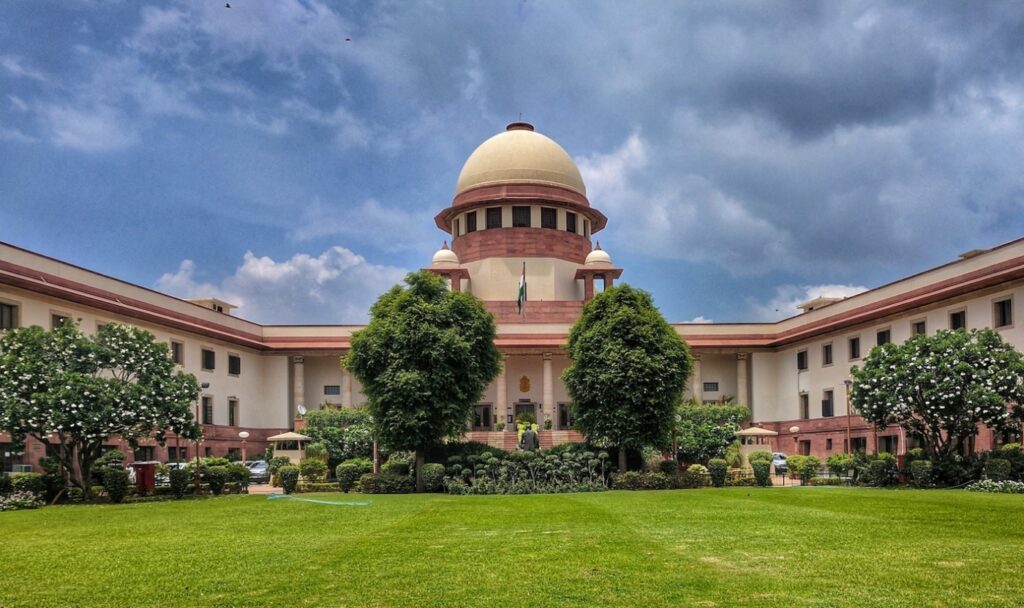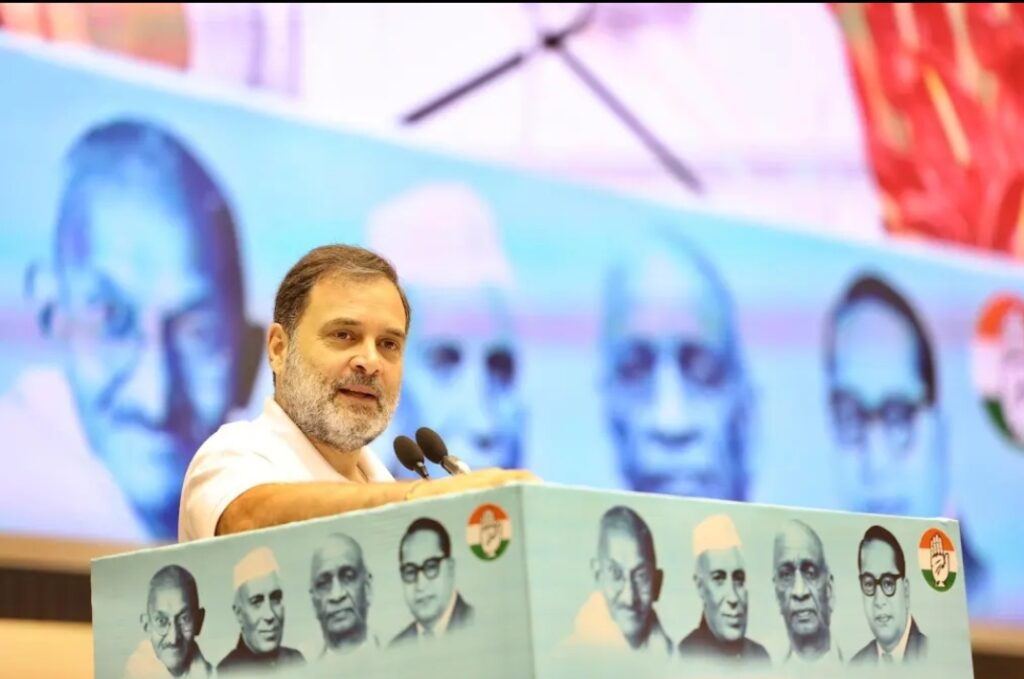

Who Is a True Indian? Unpacking the Supreme Court’s Rebuke of Rahul Gandhi
In a charged courtroom exchange on Monday, the Supreme Court of India sharply criticized Congress leader Rahul Gandhi for his remarks on the 2020 Galwan Valley clash, questioning his claim that China had occupied 2,000 square kilometres of Indian territory. The bench, comprising Justices Dipankar Datta and Augustine Masih, went as far as to question Gandhi’s patriotism, stating, “If you were a true Indian, you would not say all this.” This rebuke, delivered during a hearing on a defamation case against Gandhi, has sparked a broader debate about what it means to be a “true Indian” in a democratic society. The court’s remarks raise critical questions about the boundaries of free speech, the role of dissent in democracy, and whether questioning the government’s policies equates to disloyalty.
The Context: Rahul Gandhi’s Controversial Remarks
During his Bharat Jodo Yatra, Rahul Gandhi alleged that China had encroached upon 2,000 square kilometres of Indian territory and criticized the Indian Army’s handling of the 2020 Galwan Valley clash. These statements prompted a defamation complaint by Uday Shankar Srivastava, a former Border Roads Organisation director, who argued that Gandhi’s remarks demoralized the Indian Army and its families. The Lucknow MP/MLA court issued summons against Gandhi, a decision upheld by the Allahabad High Court, which noted that freedom of speech does not extend to defamatory statements about the armed forces. However, the Supreme Court, while granting Gandhi temporary relief on a technicality, expressed strong disapproval of his comments, questioning their basis and his choice of platform—social media over Parliament.
Is Questioning the Government Treasonous?
The Supreme Court’s assertion that a “true Indian” would not make such statements raises a troubling question: Is asking questions about the government’s handling of national security issues akin to treason? In a democracy, dissent is not only a right but a cornerstone of accountability. Gandhi’s remarks, whether factually accurate or not, were aimed at highlighting perceived failures in the government’s response to Chinese incursions. By questioning the occupation of Indian territory, he was exercising his role as the Leader of the Opposition to hold the ruling government accountable. To label such criticism as unpatriotic risks conflating loyalty to the nation with unquestioning support for the government—a dangerous precedent that undermines democratic principles.
The court’s disapproval seems to suggest that raising concerns about national security, especially in a public forum, crosses an invisible line. Yet, history shows that questioning government actions has often led to progress. From the freedom struggle to modern-day policy debates, dissent has been a catalyst for change. Branding such questioning as anti-national stifles open discourse and creates a chilling effect, where citizens and leaders hesitate to speak out for fear of being labelled disloyal.
Does Criticism Make You Less Indian?
The court’s invocation of the term “true Indian” implies that patriotism is contingent on aligning with a particular narrative—one that avoids criticism of the state or its institutions. This raises another critical question: Does questioning government policies make one less Indian or less patriotic? Patriotism is not a monolith; it can manifest in love for the country’s culture, people, or values, as well as in the desire to see it improve through constructive criticism. Gandhi’s statements, even if poorly worded, as his counsel Abhishek Manu Singhvi admitted, reflect a concern for India’s sovereignty and security. To dismiss them as unpatriotic overlooks the intent behind his words and reduces patriotism to blind allegiance.
Moreover, the Indian Constitution guarantees freedom of speech under Article 19, subject to reasonable restrictions. While defamation is a recognized restriction, the court’s focus on Gandhi’s patriotism rather than the legal merits of the case suggests a moral judgment rather than a judicial one. A “true Indian” should be free to question, critique, and demand accountability without having their loyalty scrutinized. Anything less risks alienating citizens who seek to strengthen the nation through honest dialogue.
The Democratic Right to Question
The Supreme Court’s suggestion that Gandhi should have raised his concerns in Parliament rather than on social media raises another pertinent issue: Is it the judiciary’s role to dictate where and how a political leader exercises their right to free speech? The Constitution grants every citizen, including the Leader of the Opposition, the right to question the government on matters of national importance. Platforms like social media amplify these voices, reaching millions who may not follow parliamentary debates. By questioning Gandhi’s choice of forum, the court inadvertently places limits on how dissent can be expressed, which could discourage public engagement with critical issues.
Furthermore, the Leader of the Opposition has a constitutional duty to scrutinize government actions and represent the concerns of the electorate. Gandhi’s remarks, whether accurate or exaggerated, were part of this role. To suggest that such criticism should be confined to Parliament ignores the reality of modern political communication, where public platforms are vital for shaping discourse and mobilizing opinion. The judiciary’s role is to uphold constitutional rights, not to prescribe the “appropriate” forum for political expression.
The Supreme Court’s Role and Responsibility
The court’s comments also prompt reflection on its own role in this controversy. Is it the duty of the Supreme Court to instruct the Leader of the Opposition on what questions to ask and where to ask them? The judiciary’s primary function is to interpret the law, not to pass judgment on the patriotism of individuals or the propriety of their statements. By framing Gandhi’s remarks as un-Indian, the court risks overstepping its mandate and entering the realm of political commentary. This is particularly concerning in a defamation case, where the focus should be on whether the statements meet the legal threshold for defamation, not on their patriotic quotient.
The court’s temporary stay of the defamation proceedings, based on a technical violation of Section 223 of the Bharatiya Nyaya Suraksha Samhita, demonstrates that legal reasoning can prevail over emotional rhetoric. However, the bench’s disapproval of Gandhi’s statements overshadowed this procedural relief, sending a message that could deter others from raising sensitive issues. The judiciary must tread carefully to avoid being seen as an arbiter of patriotism rather than justice.
The ‘Idea of India’ and the Red Line
Finally, the court’s remarks touch on a broader question: Does invoking the “idea of India”—a pluralistic, democratic vision—cross a red line? Gandhi’s statements, while controversial, were rooted in a narrative of accountability and transparency, values central to India’s democratic ethos. The “idea of India” encompasses the right to question, debate, and challenge without fear of retribution. By questioning Gandhi’s patriotism, the court risks reinforcing a narrative that equates dissent with disloyalty, undermining the very principles that define India as a democratic republic.
The Galwan Valley clash is a sensitive issue, and public discourse on it must be handled with care. However, silencing criticism or labeling it unpatriotic does not serve the nation’s interests. A true Indian, in the democratic sense, is one who engages with the nation’s challenges, questions its leaders, and strives for a better future. Gandhi’s remarks, whether accurate or not, are part of this engagement. The judiciary, government, and citizens must recognize that dissent is not a betrayal but a vital component of a vibrant democracy.
Redefining Patriotism
The Supreme Court’s rebuke of Rahul Gandhi raises profound questions about the nature of patriotism and the role of dissent in India. A “true Indian” is not one who remains silent in the face of perceived wrongs but one who dares to ask difficult questions, even at the risk of controversy. The court’s comments, while rooted in a desire to protect national pride, risk narrowing the space for democratic discourse. In a country as diverse and dynamic as India, patriotism must encompass the courage to critique, the freedom to question, and the commitment to uphold the constitutional values that define the nation. Only then can the “idea of India” thrive as a beacon of democracy and inclusivity.
With due respect to the Hon’ble Supreme Court and the Hon’ble Judges and without any malice or prejudice whatsoever to anyone.
Hasnain Naqvi is a former member of the history faculty at St. Xavier’s College, Mumbai





